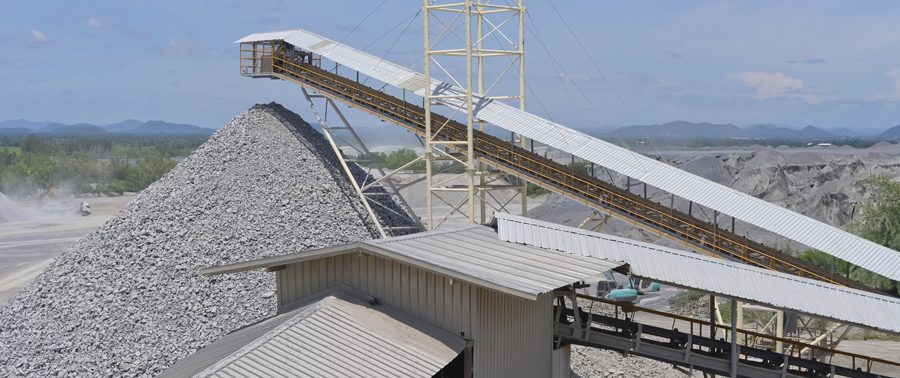The Role Of Aggregates In Concrete

Concrete consists of three main ingredients: cement, water and aggregates. Your base concrete mix will have different properties depending on how these ingredients are proportioned. Aggregates are often seen as a filler material, but their role in concrete is more varied than that.
In this article, we’re looking at how aggregates influence the end concrete mix, including the differences between aggregates of varying sizes, shapes and texture.
Workability
Arguably the most obvious aspect of a concrete mix influenced by aggregates. Workability refers to how easy concrete is to mix, transport, place and compact – or, how easy the concrete is to work with. The amount and size of aggregates used in a mix has a direct influence on a mix’s workability.
Rounded, small and smooth aggregates – such as natural, uncrushed stone found in riverbeds – will mean high workability. This is because more water is required in the mix when fine aggregates are used.
With larger, more coarse aggregates, less water is needed so the mix is thicker – and harder to work with. The trade off here is strength; more, larger aggregates are used for high-strength concrete mixes while the opposite is true for smaller aggregates.
Cost
Aggregates make up between 60% and 80% of a concrete mix. With concrete being the most expensive part of a mix, it’s more economical to maximise aggregate usage without sacrificing important properties of the mix – namely strength, durability and workability.
This balance can be a tough one to strike, so talk to your concrete supplier to find the most appropriate solution for your concrete requirements. For instance, you might be tempted to fill your mix with as much large, coarse aggregates as possible, but while this may make it cheap, the end results will be lacking. You could easily end up with a mix that is very tough to work with, meaning you’d have to increase the amount of cement paste to balance things out. You could also just add water, but this will lead to increased shrinkage. It becomes clear, then, that the balance between aggregates and the other two ingredients needs to be carefully planned mix by mix.
Strength
Your choice of aggregates will have a direct impact on the final strength of your mix. Lightweight aggregates are often used in non-structural concrete mixes, while high density aggregates are used for high strength mixes – such as foundation concrete, and even pipeline ballasting.
Fine aggregates are chosen to produce lightweight prefab concrete blocks and pavement concrete.
Choosing quality, tested aggregates is vital, but so is ensuring they are mixed together properly. You want to have a mix that minimises empty space between aggregates – this requires proper aggregate gradation.
The distribution of aggregates is possibly the most influential aspect of any mix. Getting this wrong leads to weaker concrete with poor workability and a high chance of shrinkage.
Choose quality aggregates
With aggregates, quality is everything. You can choose the right size and shape, the right distribution and quantity, but using poor quality aggregates means you’ll end up with poor quality concrete. No way around it.
When you’re looking for aggregates – whether you’re laying driveway or shed foundations, or planning a large scale commercial construction – you need quality assured aggregates, tested to industry standards.
Weak aggregates means the compressive strength of your concrete will be severely reduced – not good for anything load-bearing, or any slabs built to take constant pressure, garage floors and driveways, for example.
Using a reputable concrete and aggregates supplier – such as Neil Sullivan & Sons – means getting the right mix every time. Aggregates are processed, selected and batched to the highest standards to ensure they maximise the performance of your concrete mix.
Neil Sullivan & Sons is Essex’s number one concrete and aggregates supplier. We provide prompt delivery of your aggregates – or you can come and collect them directly from us – to ensure your construction project goes off without a hitch. All aggregates used to manufacture our concrete mixes are of the best possible quality, and we can tailor mixes to suit your needs. This includes expert advice on the type, quantity and distribution of aggregates to provide the best possible results. To find out more, or to arrange a quotation or delivery, contact us today.



